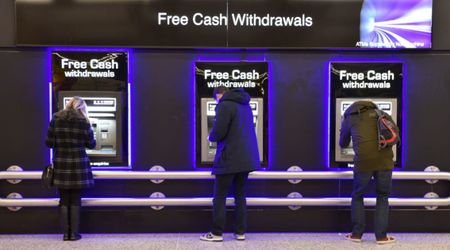How Price Rise Outpacing Salary Hikes has Forced Americans to Live Paycheck-to-Paycheck

The ongoing economic turbulence has pushed a majority of Americans toward a financial crunch, resulting in a lack of corpus funds, since many are struggling to even pay for basic expenses, which completely rules out any kind of saving and investment for future growth. As per a recent report released by Bankrate, a majority of Americans reveal that they can’t afford even a $1,000 emergency expense. Among the respondents, just 44% of them agreed that they could use their savings for any unexpected expenses and others revealed that they rely on credit cards and loans as the only option.

Emergency savings
Mark Hamrick, a senior economic analyst at Bankrate shared with CNBC, "The reality is that we are, unfortunately, essentially living in a paycheck-to-paycheck nation. We’re a consumer-based society where people are implored constantly to spend their money, and the messaging is not nearly as strong concerning saving your money". Americans have faced a rough patch in the last five years and it is pretty surprising to see that so few Americans have enough money saved up for emergencies. Not saving for the future, especially for the uncertainties is not an option. Unable to meet unexpected costs on their existing salaries has forced Americans to use credit cards a lot despite their reeling high-interest rates.
The numbers say that 21% of Americans said they would use a credit card to pay for a $1,000 emergency over time. But while cards can be a quick fix in unexpected situations, relying on them can hamper your financial goals and in addition to that, also interfere with retirement savings. Hamrick further recommends, "There is a steep price to be paid, quite literally, for failing to have emergency savings. And there can be a real domino effect that’s quite negative on personal finances if one doesn’t have sufficient emergency savings. But by building up emergency savings and using it to cover unexpected expenses, you’re solving your own problem".
Why experts urge Americans to save more
For almost a decade now, interest rates have been stooping low but now with increasing inflation, the prices will rise. The Federal Reserve is hiking its interest rates giving people a lucrative chance to save more by earning profitable interest in their savings account. Hamrick mentions, "For those wisely focused on managing and building their emergency savings, this is an opportune time to benefit from the increase in interest rates."
Apart from saving, investing in the future is also essential to attain financial stability once the situation changes. For this, Americans need to keep their portfolios diversified by shifting to high-yielding financial instruments if they aren't satisfied with the current returns. Nowadays, it is pretty easy to locate options giving an average 4% to 5% annual percentage yield. People can explore keeping money in savings accounts, treasuries, stocks, bonds, real estate, government bonds, certificates of deposit, and many others. The rates now are much more attractive as compared to the national average savings account yield which stood at 0.57%.
























